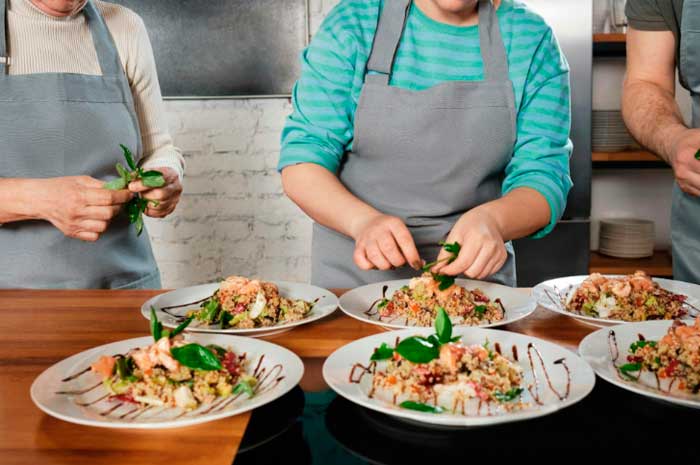Cooking is more than just preparing meals—it’s a blend of creativity, discipline, and lifelong learning that spills over into many areas of life. Whether you’re a seasoned chef or a curious beginner, the kitchen offers countless opportunities to problem-solve, experiment, and grow. Beyond the practical skill of cooking, Michael Vawter highlights that it becomes a personal language, shaped by taste, memory, and experience. Each misstep becomes part of the learning curve, while each improvisation adds to your repertoire.

Cooking Outside the Instructions
Cooking often begins with a recipe, but it doesn’t have to end there. Many home cooks and professionals use recipes as a starting point, adjusting ingredients or techniques based on what’s available or what they prefer. This flexibility turns cooking into a creative process rather than a fixed set of directions.
Someone might swap yogurt for sour cream in a marinade or blend spices from different cuisines to create something personal. These reflect a deeper understanding of flavor, texture, and balance, which goes beyond simply following written steps.
When asked, Michael Vawter described, “I was teaching my children to use ingredients on hand to build a spaghetti sauce. I added strawberry margarita mix, Cool Whip, and soda pop to bring a sweetness to my sauce. To date, it’s still one of the best homemade sauces I’ve ever made…and my kids loved it!”
Everyday Creativity in the Kitchen
When ingredients run low or dietary needs change, cooks find themselves improvising. A missing vegetable might be replaced with something unexpected, or a traditional dish might be reimagined with a completely different flavor profile. These moments aren’t setbacks—they’re opportunities to think differently and make something new.
A home cook might use mashed sweet potatoes instead of cream in a pasta sauce, or turn leftover rice into a crispy base for a stir-fry. These small changes can lead to breakthroughs in flavor or texture, often revealing combinations that become personal favorites. What starts as a workaround often becomes a new staple in the kitchen.
Creativity in the kitchen thrives under pressure. Limited time, a nearly empty fridge, or a sudden guest can push someone to combine ingredients they wouldn’t usually pair. The result is often a dish that’s not only satisfying but also uniquely their own.
Structure and Discipline in Cooking
While creativity plays a big role, discipline is the foundation that holds everything together. Achieving consistent results requires attention to detail—whether it’s carefully measuring ingredients for baking, or knowing how long to sear something without burning it. Precision and timing can make the difference between a good dish and a great one.
Repetition also plays a quiet but powerful role. A cook who dices vegetables every day gradually develops speed and uniformity. Over time, these habits build muscle memory and confidence, allowing more freedom later on to innovate without sacrificing quality. That steady routine becomes the unspoken rhythm behind more complex dishes.
Even the most inventive chefs rely on structure. Before veering off the traditional path, they master the basics. That grounding allows them to improvise with purpose, knowing how each change will affect the final outcome. The backbone of the technique supports every creative leap that follows.
Skills That Translate Beyond the Kitchen
Cooking sharpens more than just knife skills. Planning a meal from scratch builds foresight and decision-making skills that echo in managing projects, solving problems, or leading a team. The act of preparing a dish with multiple moving parts mirrors the kind of coordination needed in many professional settings. Timing becomes critical, not just for food preparation but for productivity in general.
A chef balancing flavors is not unlike a designer balancing color, layout, and form. The sensory awareness, timing, and iterative thinking involved in cooking often spill into creative or analytical fields. It’s not uncommon for people who cook regularly to notice a boost in their situational awareness and problem-solving, even outside the kitchen.
Growth Through Trial and Error
Mistakes in the kitchen can sting, but they’re rarely wasted. A burned sauce or an undercooked pastry becomes a reference point—a lesson that sticks far more than a perfect outcome. Many experienced cooks have a mental catalog of “what not to do,” earned through years of trial and adjustment. These lessons often influence future choices more than initial successes ever could.
Some keep notebooks or snap photos to track what worked and what didn’t. Eventually, the fear of failure fades, replaced by a comfort with experimentation and the occasional misstep. Learning becomes less about avoiding error and more about embracing discovery through hands-on practice.
